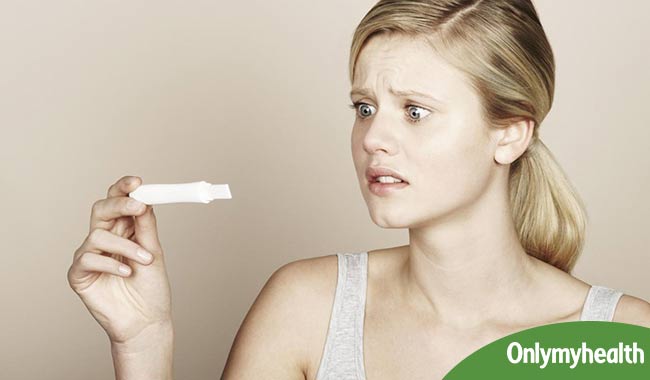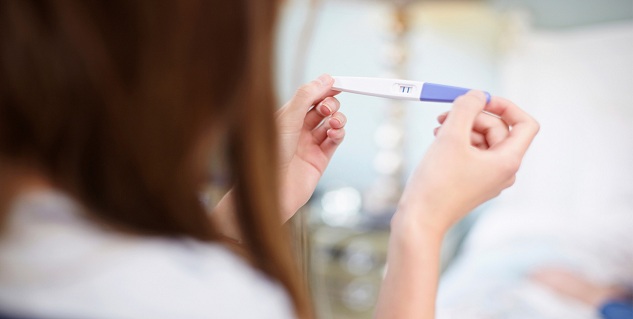
Couples often face tremendous problems when trying to conceive for the second time. After the first time, they are usually instilled with confidence and they like to pursue another childbirth, which unfortunately does not happen. This being a common problem, it is important to take note and understand what are the factors at play here.
It is only when you understand the reasons for the problem, will you be able to find a solution. So, without being disheartened and sad, it is time to lay down the issues at hand and realise what it takes to conceive the second time and why it is such a common issue. We take a look at the possible causes for women having a difficult time in conceiving for the second time. Know some of the reasons why it is harder to get pregnant the second time around:
Health Issues
A possible reason why women face difficulties in conceiving the second time could be related to health. It is important to take note of your diet after delivering the firstborn; your diet should not be on the downside. Also, take note of your weight and BMI; it should be optimum for your age. Then again, like the first time around, this time too you should be wary of drinking and smoking. All these factors directly contribute to your health and this, in turn, affects your chances of getting pregnant. Also, the spouse should be careful with his health, as an erratic lifestyle could hamper the sperm quality.

Age Issues
Yet another factor which may be troubling your fertility to conceive the second time is age. In fact, the first thing you should do is to take a note of your age. If a woman is younger than 35 years of age, it is normal to take six months to a year to conceive, however, after a year you should definitely visit a doctor.
Women who are above 40 may face more trouble, and this is why they should have a fertility expert right from the start of their pregnancy struggle, as it is important to take an expert’s advice in such times. If your partner is over 40 (since 35 to 40 percent of fertility problems can be traced back to men, and their age affects the quality of his sperm), you may want to get a specialist on board from the beginning.
Looking from a broad perspective, for women, quite plainly, irregular menstrual periods or ovulation and weight changes can complicate conception. Then there are the Pelvic or Tubal factors, such as endometriosis, which can worsen over time and interfere with fertility. Caesarean sections and other pelvic surgeries can also lead to scar tissue or blocked fallopian tubes,both of which can hurt fertility.
On the other hand, for men, experts say that testosterone supplements can damage fertility. The supplements meant to boost libido can have a negative impact on sperm quality, and this takes a long time to overcome, maybe even a year.
Blood tests and pap smear results should be normal, otherwise getting pregnant might require the help of a doctor.
Also Read: Chances of Pregnancy with One Fallopian Tube
Get Tested
Consider consulting a doctor to give you a positive “go ahead” sign depending on your overall health. Various studies and experts are of the opinion that a woman should delay getting pregnant again at least eighteen months after delivery or childbirth. According to doctors, the ideal spacing between babies for their better health is two and a half years.
Only after a positive post natal check up and after checking with your doctor you should plan a subsequent pregnancy. Your body should have recovered completely before you become pregnant again. Remember to have a good diet, prenatal supplements and a healthy weight before you get pregnant.

Know your Ovulation Period and Observe your Fertility Signs
When ovulation is only two to three days away, that is the time when a woman is most fertile. Health experts advise not to engage in intercourse a few days before the ovulation period to ensure that sperm count is high.
During your fertile phase, usually three to five days before ovulation, a woman’s cervical position is soft, high, open and wet. On the other hand, the cervix is relatively firm, low and closed during non-fertile days. Understanding of fertile days can help you get pregnant.
Why Birth Spacing is Important
Both the newborn’s health and the mother’s health depend on birth spacing as it gives sufficient time for the mother’s body to rebuild its strength and nutrition stores. In case you are planning to have children within a close time gap; you can start trying soon after six weeks from delivery date.
Image source: Getty
Read more articles on Conceiving.
For more such stories, Download Onlymyhealth App.
How we keep this article up to date:
We work with experts and keep a close eye on the latest in health and wellness. Whenever there is a new research or helpful information, we update our articles with accurate and useful advice.
Current Version